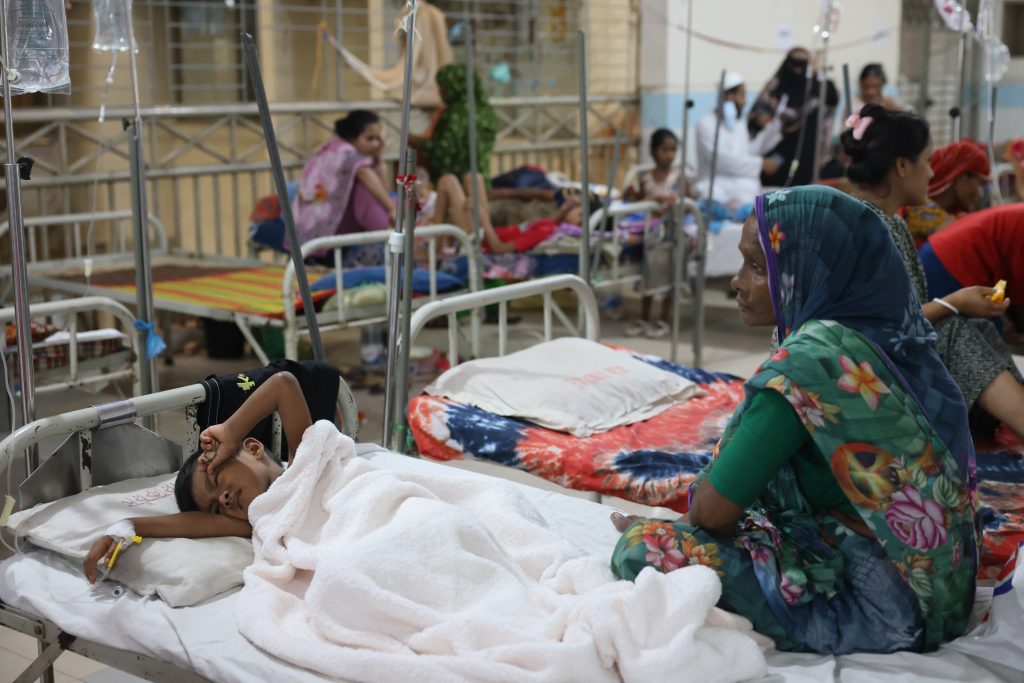Bangladesh is once again grappling with a severe dengue outbreak, with more than 39,192 confirmed cases and 156 deaths reported between January and mid-September 2025, according to government health data. Women are disproportionately affected this year, accounting for nearly 40 per cent of all reported cases, while fatalities are almost evenly split between men and women.
The outbreak peaked unusually early in July and August, months ahead of the 2024 peak in October and November. Experts attribute this shift to changing rainfall patterns and prolonged heat waves linked to climate change.
Dr Shaha Md. Ashrafozzaman, an associate professor of medicine, said, “This year has seen an early and intense monsoon, which can lead to an increased breeding of mosquitoes. That’s why the dengue situation is worse this year.”
Hospitals across Dhaka and other major cities have struggled to keep pace. Wards overflowed during the outbreak’s height, forcing some patients to wait for treatment or even a hospital bed.
Dr. Sakib Abrar, a medical officer of Internal Medicine at Dhaka Medical College, warned, “Now, every single day, we are getting a lot of patients coming in here with the signs of dengue. Having dengue once doesn’t mean you’re safe. A second infection with a different strain can actually be more dangerous and may lead to severe dengue, including internal bleeding or shock.”
Public health specialists highlight gaps in government mosquito control measures. In densely populated neighbourhoods, clogged drains, standing water, and poor waste management create ideal breeding grounds for Aedes mosquitoes, the primary carriers of dengue. Despite repeated annual epidemics, municipal efforts such as spraying larvicide or enforcing sanitation rules remain sporadic and are often criticised as largely symbolic.
Residents are frustrated with the persistent mosquito problem. Manzuri Rani Biswas, 24, a university student in Nobodoy Housing Society, Mohammadpur, said, “Mosquitoes are everywhere, even with nets and repellents. The canal and drainage are never cleaned, and nothing seems to work. We are very frustrated.”
Sidufuzzaman Diganto, 31, an entrepreneur in Banasree, said, “Mosquitoes never seem to decrease because of the lake, canals, and poor drainage. The government hasn’t informed residents about the risks. We can’t sleep without curtains, and I’m always worried about my little girl.”
The altered monsoon cycle, intensified by warming temperatures, is lengthening the mosquito breeding season, giving the virus more time to spread and making outbreaks harder to predict. The recurring waves of dengue are more than a public health concern; they are a test of governance.
As Bangladesh’s cities grow rapidly, the failure to anticipate and contain dengue has deepened public frustration, turning an annual crisis into a predictable yet unresolved threat.


